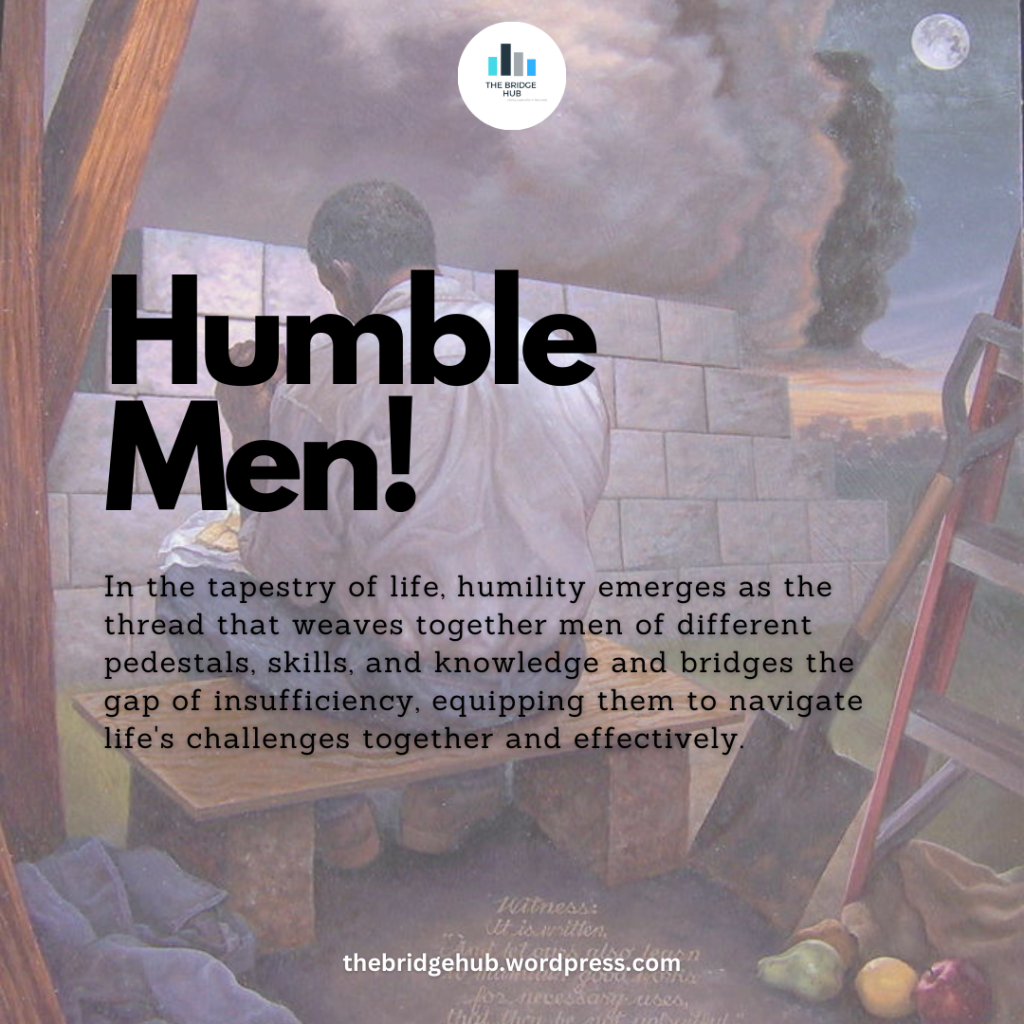Victoria Bamigbola

A wise man is identifiable by his consistent alignment with the truths he has internalized over time. Unlike many today who live their lives guided by worldly wisdom, which often disregards scriptural principles, a truly wise man anchors his life in reverence to God and His words. This alignment is deeply ingrained in his daily living and choices.
In a world driven by fleeting trends and shallow knowledge, a wise man stands out by his commitment to God’s truths. His wisdom is not shaped by societal whims but by the saving principles found in scripture. This steadfastness sets him apart as he lives in a manner reflecting his core values and beliefs.
One hallmark of a wise man is his desire to impart wisdom to others. True wisdom is never selfish; it seeks to enlighten and uplift those around. A wise man understands the value of the truth he possesses and feels a responsibility to share it, contributing to the betterment of his community and other men around. Living as though your world counts means recognizing that your actions and words can profoundly influence others. This awareness drives the wise man to live authentically and generously, making a positive impact on those around him.
Wisdom is not merely about speaking the truth but embodying it. The essence of a wise man is his ability to live out the truths he professes. This integrity gives his words weight and his actions credibility. It is easy to talk about principles and values, but it takes true wisdom to live them out consistently. The example that a wise man sets for others to follow is his life, which bears witness to the truths that he values.
Deciding to be wise is a conscious choice anyone can make. The word of God is a powerful source of wisdom, offering guidance and insight for those willing to seek it. Immersing oneself in scripture imparts the wisdom needed to navigate life’s complexities with grace and discernment. This divine wisdom forms the foundation upon which a wise man builds his life, ensuring that his decisions and actions align with the truth of God’s word.

The company you keep plays a significant role in shaping your wisdom. Surrounding yourself with wise and principled individuals can greatly influence your own growth in wisdom. Just as iron sharpens iron, interacting with those who value and live by truth refines your understanding and application of wisdom. Choosing your companions carefully is crucial, as they can either elevate your wisdom or lead you astray.
Furthermore, the materials you consume in media significantly impact the level of wisdom you exhibit. In an age where information is readily available, discerning what to absorb is essential. Engaging with content that promotes wisdom, truth, and integrity enhances your understanding and practice of these values. Conversely, consuming frivolous or misleading content erodes your capacity for wise living.
Ultimately, living as though the wisdom of God is upon you means making deliberate choices that reflect His principles. Strive to embody the truths of scripture in every aspect of life, from the company you keep to the media you consume. By aligning your life with these truths, you can walk the path of wisdom and inspire others to do the same. Wisdom is not an abstract concept but a tangible way of living that brings light and clarity to a world often clouded by confusion and falsehood. Choose to live wisely, and make your life a beacon of truth and integrity.


















